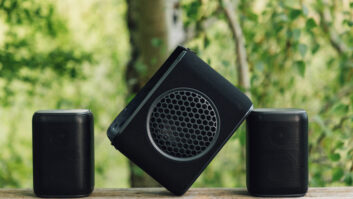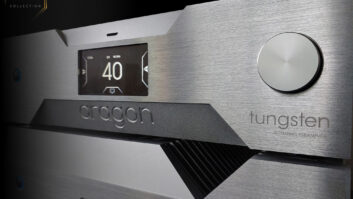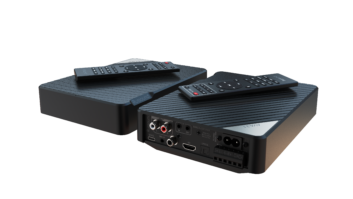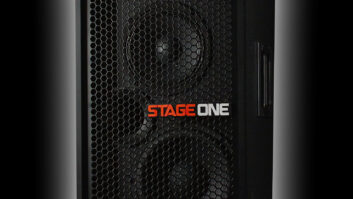NEW YORK – Music files created with Meridian’s MQA (Master Quality Authenticated) technology are expected to be available to U.S. consumers in early 2015 along with the CE products with which to enjoy them, Meridian chairman and MQA inventor Bob Stuart said.
One music label planning to offer MQA-encoded high-resolution music files is Atlantic Records, Atlantic chairman/CEO Craig Kallman told TWICE. One consumer product already available is Meridian’s own $299-suggested Explorer 2 portable headphone amp/ USB DAC, which began shipping in early December.
Announcements about other products and music availability will be made during International CES, Stuart said.
“We’ve been visiting studios and mastering facilities for three years,” Stuart said in pointing to the expected rapid availability of MQA files. The technology is getting broad support from the music industry, artists, recording and mastering engineers and record labels, he said.
At International CES, Meridian will demonstrate MQA at Venetian Suites 30-335 and 30-235.
MQA files deliver higher performance sound quality in smaller files compared to today’s high-resolution music files, Stuart said. “Unlike the huge files from superhigh- sample-rate systems, the MQA file is extremely efficiently encoded, and yet it contains and protects all the sound of the original,” a Meridian statement said. The technology will also make high-resolution music streaming practical, Stuart told TWICE.
Analog, PCM and DSD masters can be MQA-encoded, he noted.
Sizing up: The nominal streaming rate of a twochannel MQA file is 1Mbps compared with 9.6Mbps for an uncompressed two-channel 192kHz/24-bit digital file and 18.5Mbps for a 384/24 file, Stuart told TWICE. A three-minute MQA download would consume 30MB of storage space on a hard drive or portable device compared to 150MB for a three-minute 192/24 FLAC file, Stuart told TWICE. The ratio is different at other sample rates, he noted.
Because MQA streams at 1Mbps on average, it’s suitable for streaming services and will exceed the playback quality of CD-quality streaming services by a wide margin, Stuart said. The CD-quality streaming rate is 0.8Mbps on average.
Backward compatibility: MQA-encoded music, which takes PCM form, can be placed inside any lossless-audio “container” such as FLAC, ALAC or WAV “to take you right to the live performance,” Stuart added during a recent presentation at Meridian’s U.S. headquarters.
An MQA decoder can take the form of an app, a software player or hardware, and it “reconstructs the exact sound approved in the studio along with an indicator to authenticate that what you are hearing is a true rendition of the original master recording,” Stuart’s statement said. A software decoder in a smartphone or tablet app would be “capable of decoding all sources and matching it to the DAC on board,” he told TWICE. Select smartphones already feature 192/24 DACs.
For backward compatibility with existing high-resolution decoders, an MQA-encoded file played back on a device lacking an MQA decoder will deliver better-than-CD quality, Stuart noted during his presentation.
Efficiency: Other digital formats are inefficient because they use half their datarate to replicate frequencies above 20kHz that are inaudible, Stuart said during the presentation. Inaudible frequencies from 24kHz to 48kHz, however, contain information on the arrival time of individual audible sounds and are important to realistic music playback, Stuart said. MQA captures that timing information, folds it losslessly into the audible range to produce a smaller file, and delivers timing resolution up to 10ms, or 10 time better than that of 192/24 files, he explained.
MQA files remove the “temporal blur” that takes away from the naturalness of a performance and adds depth and texture, he continued. “With precise time, you feel you can reach out and touch [the artists].”
Humans are five to 13 times more sensitive to time information than to frequency, he said, citing neuroscience research that shows that “the timing details of a few seconds are important” to how we “identify and locate sounds.”
During a demonstration at Meridian’s U.S. headquarters, Stuart played back 0.9Mbps MQAencoded files of a recording originally made at 17Mbps 384kHz/24-bits through Meridian floorstanding DSP speakers.
Stuart invented Meridian Lossless Packing (MLP) technology used for the lossless compression of high-resolution multichannel music on DVDAudio discs. The technology became the basis for the Dolby TrueHD multichannel surround format on Blu-ray discs.













